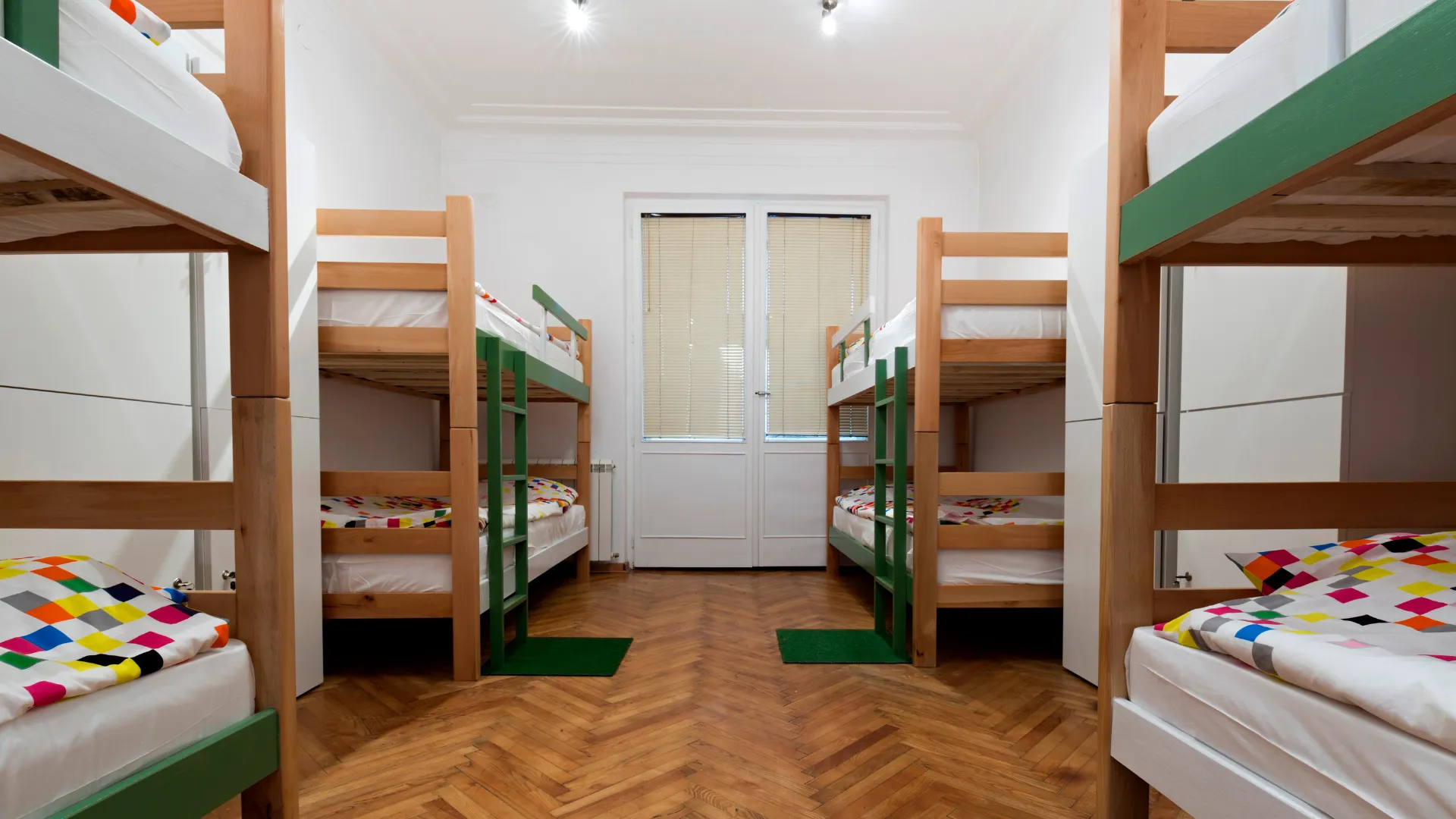Shared Housing vs. Private Rentals: Pros and Cons for Expats

Relocating to a foreign country as an expatriate is an exciting yet daunting experience, often fraught with logistical challenges, particularly concerning accommodation. The initial decision of where to live significantly impacts an expat’s integration, budget, and overall comfort. Two prevalent housing options typically present themselves: shared housing and private rentals. While a private rental offers the allure of independence and personal space, the financial burden can be considerable, especially in major metropolitan areas. Conversely, shared housing promises cost savings and potential community but raises concerns about privacy, compatibility, and potential conflicts.
This article aims to dissect the pros and cons of shared housing versus private rentals for expats, providing a comprehensive analysis to assist in making an informed decision. We will explore the financial implications of each option, delve into the subjective aspects of privacy and community, examine the potential for cultural immersion versus conflict, address crucial legal considerations, and ultimately evaluate the long-term viability of shared housing as a sustainable expat solution. Ultimately, the choice hinges on a careful evaluation of individual needs, priorities, and risk tolerance in the context of a unique expatriate journey.
Shared Housing: A Necessary Evil or Strategic Expat Choice?
Shared housing, often perceived as a temporary solution for those on a tight budget, can be a surprisingly strategic choice for expats, particularly those new to a country. The immediate benefit is the established infrastructure: utilities are typically already connected, and furnishings are often provided, eliminating the initial scramble and significant upfront costs associated with setting up a private rental. This allows expats to focus on more pressing matters, such as securing employment, navigating the local bureaucracy, and adapting to the new culture.
However, the “necessary evil” label often arises from the inherent compromises required in shared living. The lack of control over who you live with can lead to compatibility issues, differing lifestyles, and potential conflicts regarding cleanliness, noise levels, and shared resources. Furthermore, shared spaces can feel cramped and impersonal, hindering the creation of a true “home” away from home. This can exacerbate feelings of isolation and homesickness, particularly for expats accustomed to a higher degree of privacy and personal space.
Ultimately, whether shared housing is a strategic choice or a necessary evil depends heavily on the expat’s personality, adaptability, and tolerance for compromise. Those who value social interaction and are comfortable navigating shared spaces with diverse individuals may find it a rewarding experience. Conversely, those who prioritize privacy, tranquility, and control over their living environment may find the drawbacks outweigh the financial benefits.
Financial Implications: Can Shared Living Truly Save You Money?
The primary allure of shared housing lies in its potential for significant cost savings. Rent is divided among multiple occupants, resulting in lower monthly payments compared to securing a private rental. This is particularly advantageous in cities with exorbitant housing costs. Beyond rent, shared housing often includes utilities in the monthly cost, providing a stable and predictable expense, shielding expats from unexpected bills and fluctuating energy prices.
However, it’s crucial to conduct a thorough cost-benefit analysis before assuming that shared living is always the cheaper option. Hidden costs can erode the initial savings. For example, shared housing often requires purchasing personal items that might already be available in a fully furnished private rental. Furthermore, the lack of privacy and control can lead to increased spending on external entertainment and dining, offsetting the savings on accommodation.
Moreover, the perceived savings can be deceptive if one’s professional life suffers due to the distractions and inconveniences of shared living. Reduced productivity, difficulty concentrating, or inability to hold professional meetings in a shared space can ultimately impact earning potential, negating the initial financial advantages. Therefore, a comprehensive budget analysis considering both direct and indirect costs is essential to determine if shared living truly offers significant financial benefits.
Privacy vs. Community: Weighing the Intangible Costs and Benefits
The trade-off between privacy and community is arguably the most significant factor influencing an expat’s decision between shared housing and private rentals. Private rentals offer the ultimate sanctuary, allowing for complete control over one’s living space, schedule, and personal interactions. This is particularly valuable for expats seeking to maintain a sense of normalcy and stability in a foreign environment, providing a refuge from the challenges of cultural adaptation.
However, the isolation inherent in private rentals can be detrimental to an expat’s well-being, particularly in the initial stages of relocation. The lack of spontaneous social interaction can exacerbate feelings of loneliness and homesickness, hindering integration into the new culture. Shared housing, on the other hand, provides an immediate sense of community, fostering connections with individuals who may share similar experiences and offer support and guidance.
The intangible benefits of community extend beyond mere companionship. Shared housing can facilitate language learning, cultural exchange, and access to valuable local knowledge. Housemates can provide insights into the local customs, unwritten rules, and hidden gems that are often inaccessible to newcomers. Ultimately, the decision hinges on the expat’s individual needs and personality: those who thrive on social interaction and value a supportive community may find the lack of privacy a worthwhile trade-off, while those who prioritize solitude and personal space may find the isolation of a private rental preferable.
Cultural Immersion or Clash? Navigating Shared Living Challenges
Shared housing presents a double-edged sword in terms of cultural immersion. On one hand, living with individuals from diverse backgrounds can be a powerful catalyst for cultural understanding and language acquisition. Exposure to different perspectives, customs, and traditions can broaden an expat’s horizons and accelerate their integration into the new society. Shared meals, cultural celebrations, and everyday interactions can foster empathy and break down cultural barriers.
However, the potential for cultural clashes is undeniable. Differing values, communication styles, and lifestyle habits can lead to misunderstandings, conflicts, and resentment. Issues such as hygiene, noise levels, cooking preferences, and social etiquette can become sources of friction, particularly in close quarters. Furthermore, cultural differences can exacerbate existing personality conflicts, making it challenging to navigate shared living arrangements harmoniously.
Successful navigation of these challenges requires open communication, mutual respect, and a willingness to compromise. Expats entering shared housing should be prepared to adapt to different cultural norms, learn to communicate effectively across cultural divides, and actively seek solutions to potential conflicts. A proactive approach to understanding and appreciating cultural differences is crucial for fostering a positive and enriching shared living experience.
Lease Agreements & Legalities: Hidden Traps in Shared Housing?
Navigating lease agreements and legalities in a foreign country can be particularly complex in shared housing arrangements. Unlike private rentals, where the tenant typically has a direct relationship with the landlord, shared housing often involves subletting or shared tenancy agreements, which can be legally ambiguous and potentially fraught with hidden traps. It’s crucial to thoroughly understand the terms and conditions of the agreement before signing anything.
One of the most significant risks is the joint and several liability clause, which holds each tenant responsible for the entire rent and any damages to the property, regardless of individual responsibility. This means that if one housemate defaults on their rent payment or causes damage, the remaining tenants are legally liable to cover the shortfall. This can create financial instability and legal vulnerability for expats unfamiliar with local laws and regulations.
Furthermore, subletting agreements may not provide the same legal protections as direct tenancy agreements, potentially leaving expats vulnerable to eviction or unfair treatment by the primary tenant or landlord. Therefore, it is essential to seek legal advice and carefully scrutinize the lease agreement to ensure that all parties’ rights and responsibilities are clearly defined and legally enforceable. Understanding local tenancy laws and securing proper documentation is crucial for mitigating legal risks and protecting oneself from potential exploitation.
Long-Term Viability: Is Shared Housing a Sustainable Expat Solution?
While shared housing can be a beneficial short-term solution for expats, its long-term viability is questionable for many. The constant compromises and potential for conflict inherent in shared living can eventually erode one’s sense of privacy, independence, and comfort, leading to burnout and a desire for more stable and autonomous living arrangements. The novelty of cultural exchange and community support can wane over time, particularly as expats establish their own social networks and adapt to the local culture.
Moreover, shared housing may not be conducive to long-term career goals or personal development. The lack of privacy and quiet space can hinder productivity, making it difficult to concentrate on work or pursue personal projects. Hosting professional meetings or entertaining guests can be challenging, limiting networking opportunities and social interactions. As expats advance in their careers and establish deeper roots in the new country, the need for a more professional and private living environment often becomes paramount.
Ultimately, the decision of whether shared housing is a sustainable long-term solution depends on individual priorities, lifestyle preferences, and career aspirations. While some expats may find shared living to be a rewarding and enriching experience even after several years, most will eventually seek the stability, privacy, and autonomy offered by a private rental as they build a more permanent life in their adopted country.
The decision between shared housing and private rentals for expats is a multifaceted one, with no universally correct answer. While shared housing presents undeniable financial advantages and the potential for immediate community, it requires significant compromises in terms of privacy, control, and personal space. The potential for cultural clashes and legal complexities further necessitate careful consideration and proactive planning. Private rentals, on the other hand, offer greater autonomy and stability but come at a higher financial cost and can lead to social isolation.
The optimal choice hinges on a thorough evaluation of individual needs, priorities, and risk tolerance in the context of the specific expatriate journey. Factors such as budget constraints, personality traits, career goals, and cultural adaptability all play a crucial role in determining which housing option best suits an expat’s unique circumstances. Ultimately, the key is to conduct comprehensive research, weigh the pros and cons carefully, and make an informed decision that maximizes the chances of a successful and fulfilling expatriate experience.











